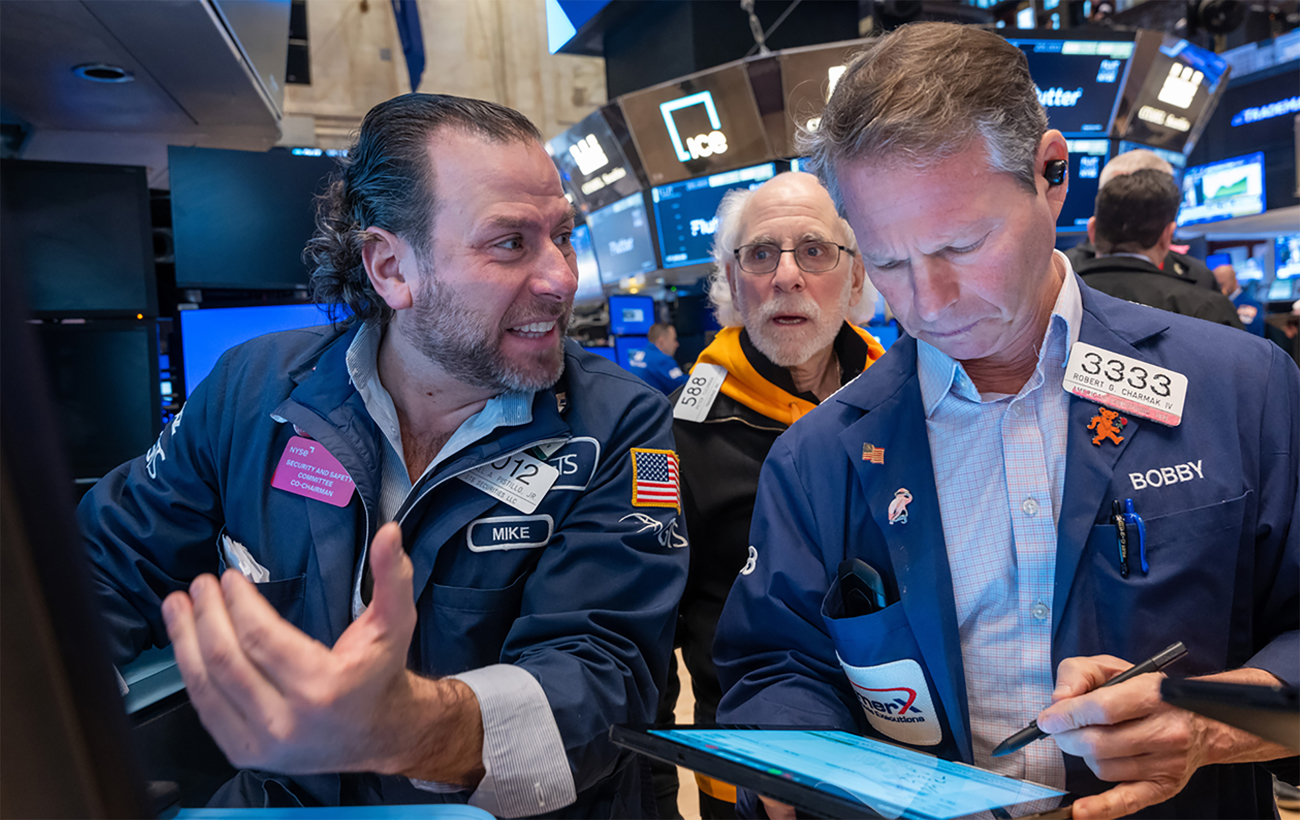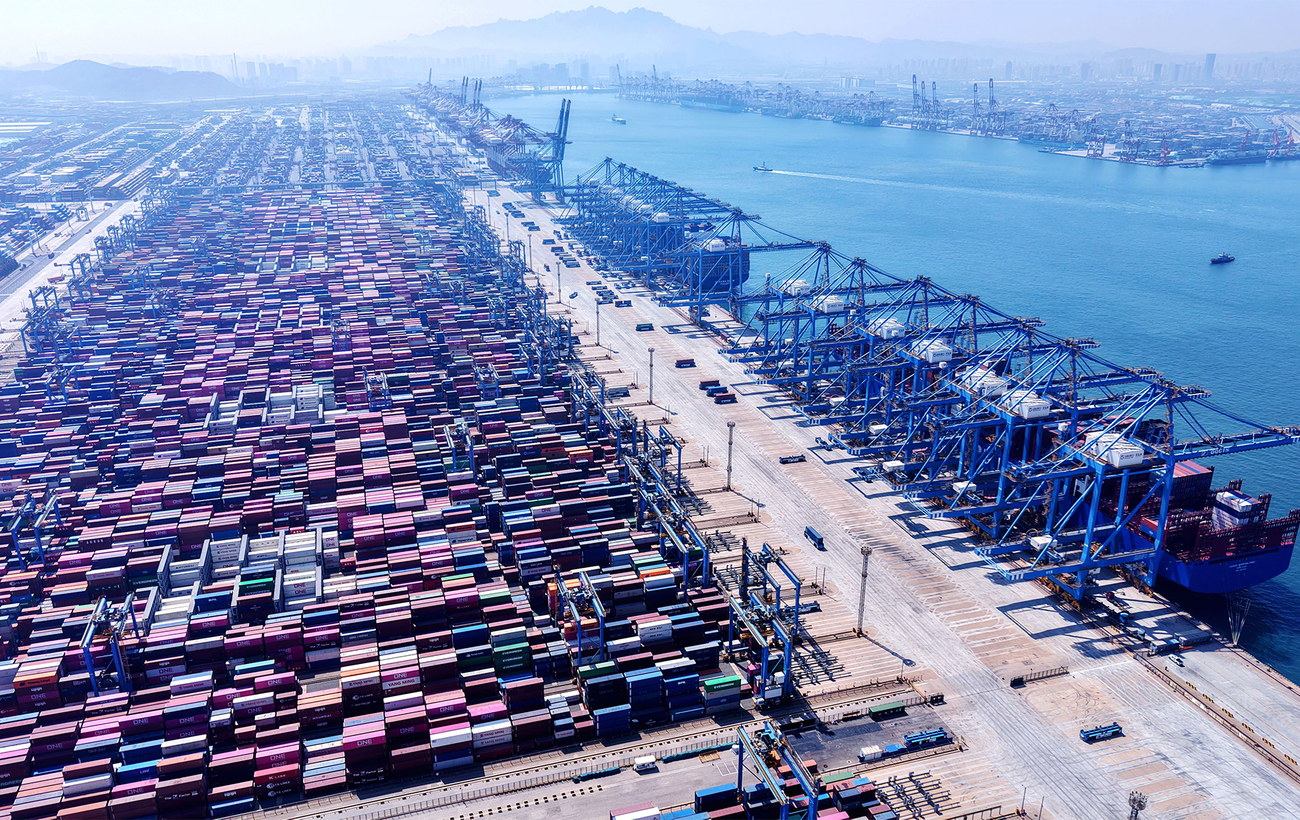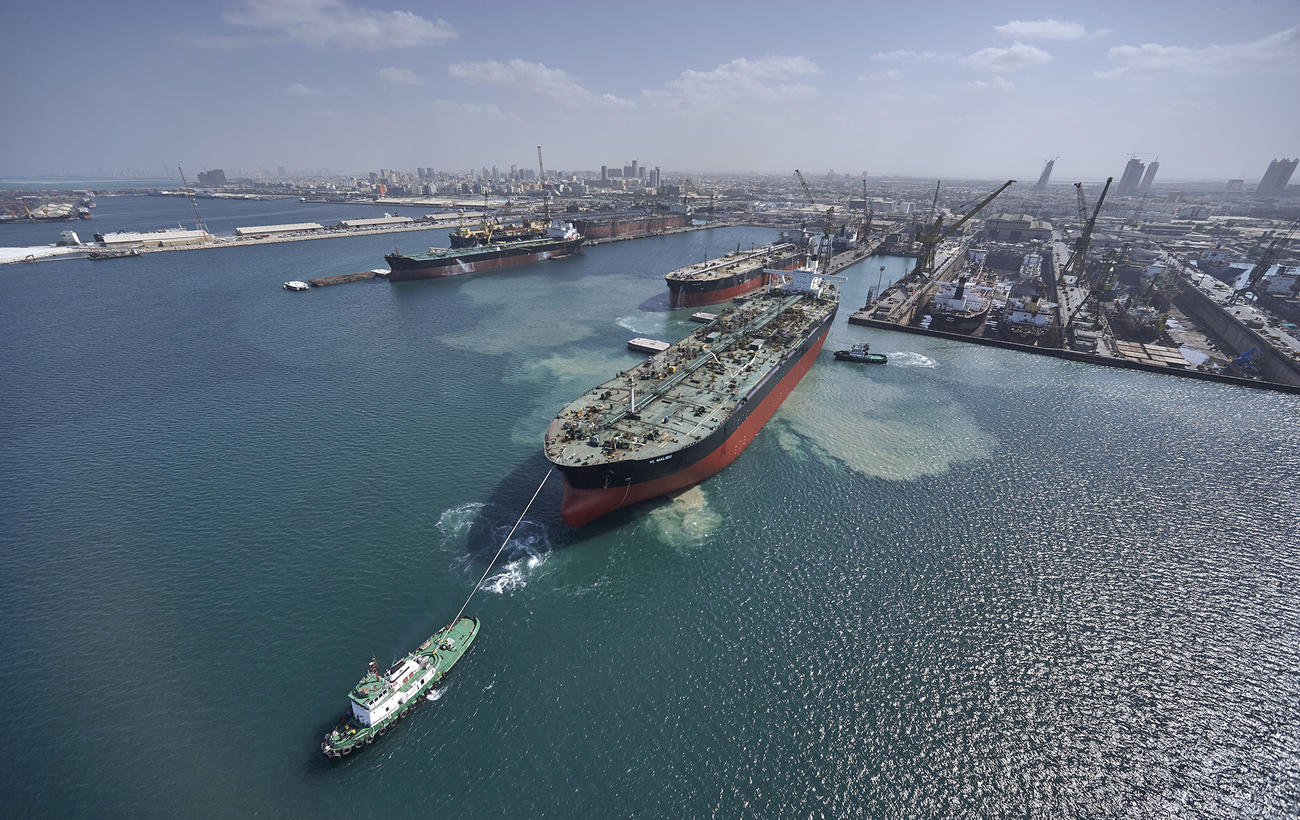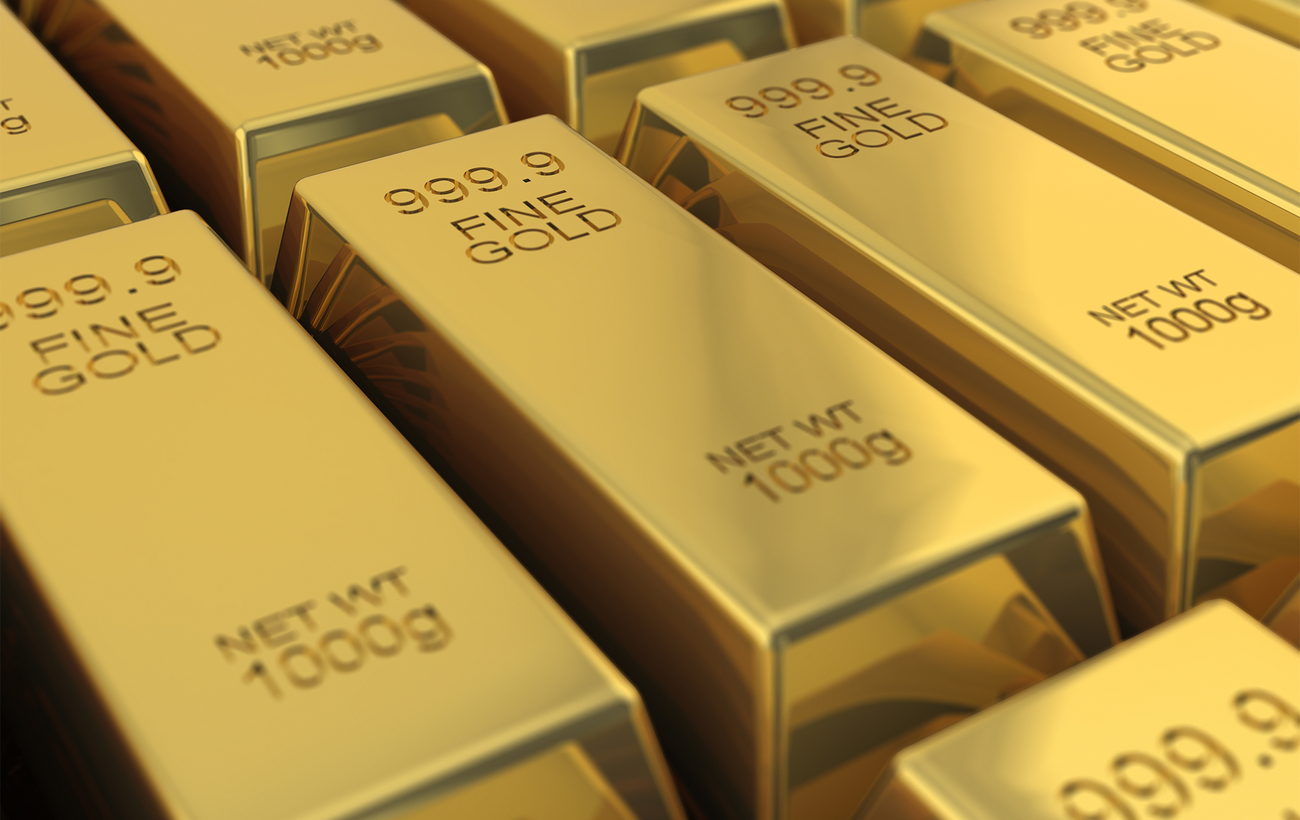Trump pushing world into crisis? How fear of trade war plunges stock markets
 Photo: Donald Trump's decision led to a historic collapse in the US stock market (Getty Images)
Photo: Donald Trump's decision led to a historic collapse in the US stock market (Getty Images)
The decision by the United States to impose tariffs has caused an unprecedented drop in global stock and commodity markets. Economists are talking about the beginning of a global crisis. Which markets have been affected, what consequences the economy of Ukraine is already experiencing, and what should be expected in the future - read in the material by RBC-Ukraine.
On April 7, headlines from leading US financial media resources were already filled with words like "bloodbath," "bloody slaughter," "shock," or "collapse." The word "bloody" for the stock market has not only a figurative but also a literal meaning, as the decline in prices on stock exchanges is marked in red.
Decline of global stock markets
The sharp epithets reflect the extraordinary drop in key stock market indices. Just one day after US President Donald Trump announced new tariffs on April 2, key indices fell by 4-5%. For example, the Dow Jones Industrial Average (which reflects the value of stocks of the 30 largest US companies) fell by 4% to $38,314, and the S&P 500 Index (a basket of 500 US companies with the largest market capitalization) lost 4.8% of its value, dropping to $5,397. In the following days, these indices continued to fall.
According to Bloomberg, as of April 7, the Dow Jones index level ($37,797) corresponds to the figure of January 2024. What scares market participants the most is not so much the low value of the index but the speed of the decline, which could be a sign of the onset of a new economic crisis.
The same drop is observed in the stock markets of Asia. For example, the key index on the Tokyo Stock Exchange - Nikkei 225 (which reflects the value of the stocks of 225 companies that are the most traded on this exchange) - fell by 13% from April 2 to April 7 to 31,137 Japanese yen. The South Korean Stock Exchange's KOSPI Index lost 7% during the same period, dropping to 2,328 South Korean won.
How collapse of stock markets may affect Ukraine
Currently, the US stock market is entering a bearish state. This is a situation where a decline in prices prevails, in contrast to a "bull market" where prices rise. In a "bear market", companies are reluctant to sell stocks because they are undervalued.
"This means that the amount of money available to businesses is shrinking. Companies have fewer resources and less motivation to develop investment projects, including abroad. Economists say that the market decline is a sign that a recession is likely to follow - this occurs when GDP drops for three consecutive quarters," says Oleksii Duhov, an economist and professor at the Lviv Polytechnic National University, in an interview with RBC-Ukraine.
By the way, one of the largest US investment banks, JP Morgan, increased its assessment of a possible global recession from 40% to 60%.
 Photo: Stock market decline on April 7 threatens global economic recession (Getty Images)
Photo: Stock market decline on April 7 threatens global economic recession (Getty Images)
According to Oleksii Duhov, the decrease in GDP in developed countries could be around 0.5-1% per quarter, which is a relatively small figure. However, countries with transition economies, which are dependent on external funds, will suffer the most.
"If we talk about Ukraine, we are dependent on external financing, grants, and loans. As the crisis unfolds, we will have fewer chances to attract new financing," explained the expert.
The collapse of global stock markets that has already occurred is more of an emotional reaction, a panic among investors, according to the expert. Indices may partially regain their positions, but if the downward trend continues (even if not so sharply), the crisis processes will intensify. According to Oleksii Duhov, if tariffs are not revoked in the next month and no agreements are reached between Trump and other countries, companies will simply stop investing in development, including in countries like Ukraine.
"We will feel a significant lack of external financing, and this will put pressure on both the currency and the budget... It will affect the social sphere, employment levels, and wages," said the expert, adding that the effects of the crisis could already be felt in 3-6 months.
Today, the global economy is entering a downward spiral, says Oleksii Ustenko, former economic advisor to the President of Ukraine. In a comment to RBC-Ukraine, he noted that the collapse of stock markets is dragging down the same trend in commodity and raw materials markets.
"A decline in both the stock and commodity markets creates an additional wave of panic. The global economy is entering a downward spiral, and there is growing uncertainty about the future policy of central banks," Ustenko said, confirming the prospect of a reduction in investment in Ukraine.
 Photo: Economists are talking about the beginning of the global economic crisis (Getty Images)
Photo: Economists are talking about the beginning of the global economic crisis (Getty Images)
A decrease in the inflow of external capital to Ukraine is also expected from European countries. According to Oleksii Ustenko, European neighbors will soon face significant domestic economic problems that will require much attention.
Market reaction: Emotions take over
In addition to the stock market, a sharp decline is also observed in the commodities market. According to Bloomberg, the price of Brent crude oil futures for delivery in June 2025 dropped nearly 16% from April 2 to April 7 to $63.2 per barrel. This is the lowest price since February 2021, during the coronavirus pandemic, when the global economy was in a crisis state.
Following crude oil, prices for metals, including copper, aluminum, zinc, and titanium, also dropped significantly. On April 7, the price of copper on the London Metal Exchange fell to the lowest value of the year - $8,780 per ton.
The collapse in metal prices will negatively impact the economy of Ukraine, as iron ore and metal products are significant components of Ukraine's exports. According to the Head of the Expert and Analytical Council of the Ukrainian Analytical Center Borys Kushniruk, against the backdrop of a general decline in commodity prices, there could also be a drop in prices for agricultural products.
"Prices for agricultural products are highly dependent on the harvest in a given year, so despite the drop in commodity prices, agricultural products may not see a decrease, or they may. It all depends on the natural conditions and the harvest," Kushniruk told RBC-Ukraine.
A positive aspect of the sharp drop in commodity prices, especially oil, according to Kushniruk, will be the reduction in Russia's revenues since the country's income from hydrocarbon exports is significant.
"The price of oil falling to $40 per barrel would make the continuation of the war simply impossible. From this point, it could be a positive outcome," commented the expert.
A drop in oil prices will also lead to a reduction in the price of petroleum products, which Ukraine imports in large quantities, and to a decrease in prices at gas stations.
 Photo: Drop in global oil prices will significantly reduce Russia's export revenues (Getty Images)
Photo: Drop in global oil prices will significantly reduce Russia's export revenues (Getty Images)
Decline in dollar exchange rate: What's next
The announcement of new tariffs by Trump had an impact on the dollar exchange rate. According to the European Central Bank, on April 2, one dollar was worth 0.925 euros, and by April 3, it was worth 0.9 euros. Thus, the dollar exchange rate against the Eurozone currency lost 2.7% of its value in just one day. As of April 7, the dollar exchange rate against the euro remained at 0.9 euros.
The dollar is also depreciating against the hryvnia. According to the official exchange rate of the National Bank of Ukraine, on April 2, the dollar was worth 41.37 hryvnias, and by April 3, its value had decreased to 41.32 hryvnias. As of April 7, the official exchange rate of the dollar was 41.19 hryvnias. Thus, from April 2 to April 7, the dollar depreciated by 0.4% against the hryvnia. This soft decline in the dollar's exchange rate against the hryvnia, compared to its value against the euro, is explained by the National Bank of Ukraine policy.
Ukrainian financial expert Oleksii Kozyrev from the Minfin web portal explained this in a comment to RBC-Ukraine, stating that the National Bank of Ukraine always seeks to minimize sharp fluctuations in the exchange rate of the dollar.
"On one hand, the National Bank of Ukraine is lowering the exchange rate, so the regulator is responding to what is happening in the international currency market. On the other hand, in a country at war, which is not economically developed but is still a developing country, sharp currency fluctuations are a very undesirable phenomenon for the economy," said the Ukrainian expert.
In the case of sharp exchange rate fluctuations, producers or importers will factor in the highest possible exchange rates (which have occurred) into their product pricing to account for all risks. This approach accelerates inflation. If the exchange rate remains relatively stable, the entire market operates within an acceptable range.
"Exchange rate fluctuations have a very negative impact on all economic agents, so the National Bank is most interested in smoothing out fluctuations... In this case, when the dollar is depreciating, the National Bank of Ukraine is following the trend but is not allowing the exchange rate to drop globally," Kozyrev added.
Gold price hits record highs
Amid the decline of stock indices, the dollar exchange rate, and oil prices, gold is rising. According to the London Bullion Market Association, which represents global companies involved in the supply and sale of gold, silver, platinum, and palladium, the price of gold has surged to a historic record of $3,119 per ounce.
This reflects the fears of investors, who are increasingly turning to gold, as it has always served as a "safe haven" and a protective asset.
"Gold serves as a store of value. Investors use it as a means of preserving their funds because they are unsure what the future prices of other assets will be," said Borys Kushniruk, adding that gold prices may also fluctuate significantly in the long term, making this asset more necessary during turbulent periods.
 Photo: Investors are stockpiling gold to protect their capital (Getty Images)
Photo: Investors are stockpiling gold to protect their capital (Getty Images)
If Ukrainians wish to buy gold, the expert recommends purchasing monetary gold issued by the National Bank, such as investment coins or gold bars.
Beginning of global economic crisis
According to Oleh Ustenko, the current events in the financial and commodity markets indicate that the global economy is experiencing the beginning of a new crisis.
"The crisis is now at its beginning," Ustenko said in an interview with RBC-Ukraine.
The expert also added that during a crisis, both investor activity and entrepreneurial initiative are expected to decrease. In this situation, Ukraine must do its "homework" to improve its investment climate, the economist believes. It is necessary to continue judicial reform, develop anti-corruption infrastructure, and ensure the protection of property rights. Crisis periods are best used to prepare for recovery - until the market begins to rebound from the bottom.



